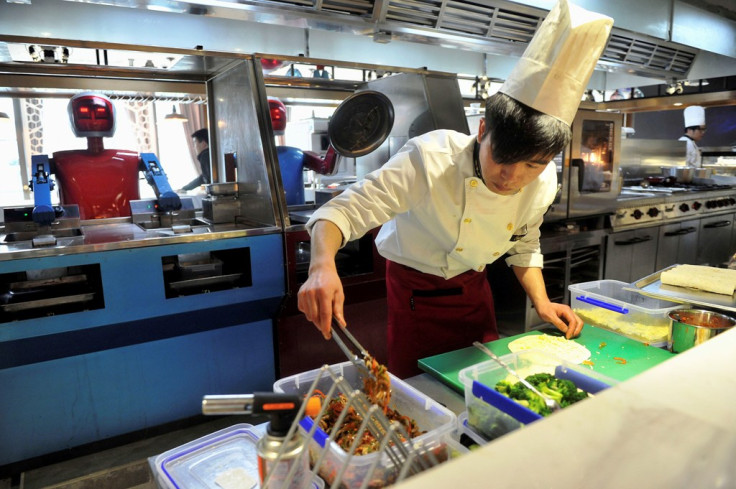China's HSBC/Markit Services PMI rises but job growth at 10-month low

China's services sector expanded in March but growth in employment and new business dropped to their lowest in at least eight months, according to a survey
The HSBC/Markit China Services Purchasing Managers' Index (PMI) rose to 52.3 in March, compared with 52 in February, staying above the 50-point level that separates growth from contracting activity.
But the marginal expansion was offset by dismal growth in employment, which fell to a 10-month low of 51.1.
Growth in new businesses hovered at an eight-month low.
The latest numbers suggest that a weak Chinese economy, the world's second-largest, could need more stimulus to prevent a sharper downturn.
Economists' take
Annabel Fiddes, an economist at Markit, said in a statement: "Chinese manufacturers and service providers both managed only modest increases in output at the end of the first quarter.
"Data suggests that relatively weak client demand had dampened growth across both sectors, with new orders expanding at the slowest rate in eight months at service providers while falling at manufacturers.
"As a result, service sector companies took a more cautious approach to hiring, raising their staff numbers only slightly over the month, while job shedding accelerated across the manufacturing sector..."
Bill Adams, senior international economist for PNC Financial Services, said in a note to clients: "...service sector employers, who account for a larger share of aggregate employment than the manufacturing sector, added to payrolls in March, contrasting with the decline in employment reported in the HSBC manufacturing PMI in the month.
"The most closely watched PMIs for China were more noise than signal in March: The CFLP and HSBC manufacturing PMIs moved in opposite directions, as did the CFLP non-manufacturing and the HSBC services PMIs.
"On net, it seems most likely that China's slow growth momentum in February was unchanged in March. Real GDP growth in the first quarter was likely less than 7% in year-ago terms."
...there is a lot more that policymakers can, and likely will, do to shore up activity in order to prevent growth from slipping further.
Capital Economics said in a 2 April note: "Growth [in China] looks likely to have slowed sharply in Q1, in spite of recent cuts to the required reserve ratio and benchmark interest rates. This has raised concerns that policymakers are now struggling to offset downward pressure on the economy and may fail to meet their annual growth target for this year.
"We're more optimistic the target will be met as we think there is a lot more that policymakers can, and likely will, do to shore up activity in order to prevent growth from slipping further."
Property downturn
Earlier in the week, Chinese regulators cut downpayment requirements for home buyers for the second time in six months, in a bid to fire-up a cooling property sector that can then support manufacturing and allied services.
Services are an increasingly important growth pillar in China, which is busy revamping its economy to boost domestic demand and cut reliance on manufacturing and exports, Reuters reported.
Services' share in China's economic output rose to 48.2% in 2014. By comparison manufacturing and construction contributed 42.6% last year.
© Copyright IBTimes 2025. All rights reserved.






















